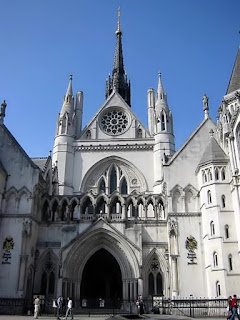Small IP Claims Update

Royal Courts of Justice Photo Michael Reeve Source Wikipedia Creative Commons Licence Jane Lambert It is not often that one receives an accolade from a client. Usually, if a client wins, it is down to the natural justice of the case and nothing to do with the eloquence or preparation of the advocate. If the client loses, it's all the lawyer's fault. So it was lovely to receive thanks from a public access client earlier this week whose case in the small IP claims track has just been resolved to his satisfaction. The client said that it actually took him a very long time to find someone who truly understands IP the way I do, especially in relation to e-commerce and added that there is certainly a market there for me to tackle. Although the case was in the small claims track it was not an easy one. Had the claim not settled a novel point of law would have to have been decided and there were also procedural issues that required several preliminar

